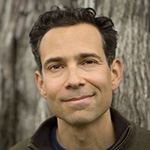
NVC Resources on Listening
-
Among NVC practitioners, empathy can be superficial. How open are you to being influenced by what others are saying? Do you reflect back and then guard and remain within your position of being right, even as you say otherwise? Only when we're eager to be influenced by what they say can we connect, expand our world and thus, shift the field. Without such openness we fool ourselves into thinking we are truly empathic listeners.
-
Lorraine Aguilar perceives NVC-based listening to be an essential skill to cultivate for success in the business world. A key exercise for building your listening muscle is to work with your judgments of others by translating those judgments from “What’s wrong with them?” to “What's important to me?”
-
While someone is upset or hurt they may "listen" to us to gather evidence for a rebuttal, to assert or validate a preconceived idea, and so on. When in this "predatory listening" mode, the "listener's" needs overshadow relational values like understanding, connection, or mutuality. In response to this we can consider our purpose, affirm any positive intent or need in what they say, and ask direct, honest questions.
-
In this thought provoking talk, Kathleen Macferran explores the power of listening to open doors and potentially to transform people. This talk was given at a local TEDx event, produced independently of the TED Conferences.
-
Trainer Tip: In our effort to be heard, we often forget to listen. In fact, your need to be heard will not be met completely until you have heard how what you said affects the other person. If we want to ensure that we're heard we can ask the other person to reflect what they heard us say. And we can hear what's going on with them. It is important to remember that a dialogue is not complete until both people have been heard.
-
Often, honoring someone’s choice supports more connection. Thus, checking in with someone’s choice to listen or not (offering autonomy) sets the stage for being heard more fully. On the other hand, when someone has the perception that you are talking to them without considering their choice, resentful listening might result. Here are ways to mindfully check in about choiceful listening before starting a conversation.
-
Using her own and participants' examples, Inbal illuminates parents on where they might be struggling with connecting to their children's needs, especially in situations where the children are responding to the parent's request.
-
Listening is a cornerstone of dialogue and a powerful metaphor for spiritual practice. When we’re willing and able to listen, we open a conduit that allows connection and understanding to happen.
-
Being heard is a core human need. But what if you don't like what the other person is saying: how do you hold onto your awareness of their humanity? Find out in this demonstration from Kathy Simon's course, Connect Across Differences.
-
Listen to the Universe is a fun group exercise to explore how we focus our attention and interpret what we experience.











